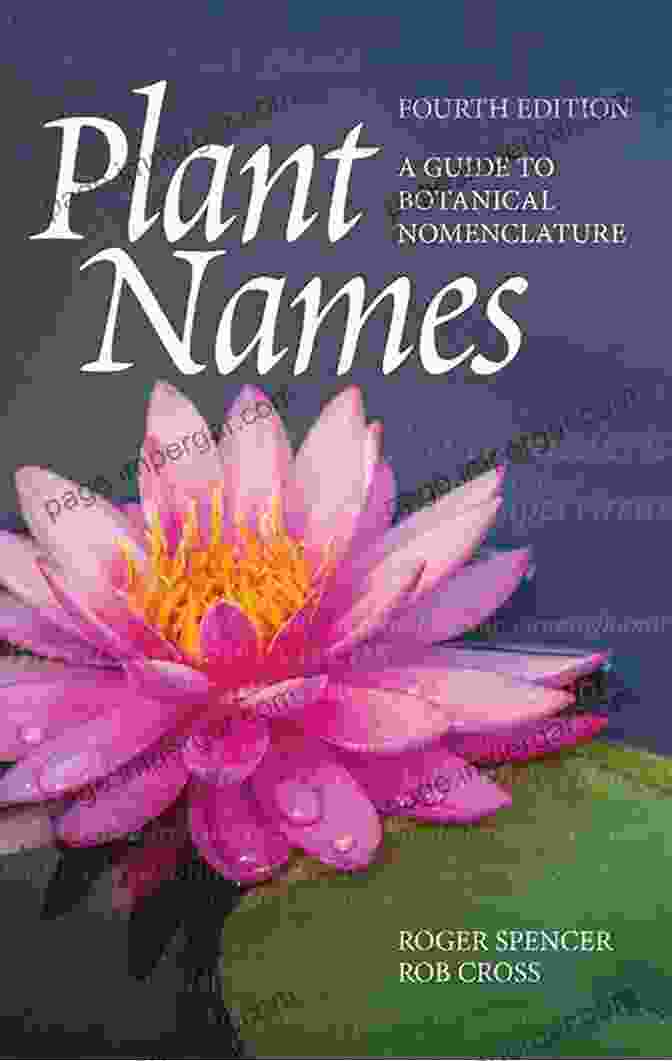
Welcome to the captivating world of botanical nomenclature, the system of naming plants. This comprehensive guide will lead you on a fascinating journey into the origins and meanings of plant names, providing you with the tools to understand and navigate the complex world of scientific plant identification.
Throughout history, plants have played a vital role in human civilizations, providing sustenance, medicine, and countless other uses. As civilizations flourished, so did the need to distinguish between different plant species and to communicate about them effectively. This led to the development of botanical nomenclature, a standardized system that assigns unique scientific names to plants.
These scientific names are not arbitrary; they are carefully crafted to reflect the plant's unique characteristics, its evolutionary relationships, and its place within the plant kingdom. By understanding the principles of botanical nomenclature, you can unlock the hidden stories behind plant names, revealing the fascinating connections between plants and their environment.
The Basics of Botanical Nomenclature
Botanical nomenclature is governed by a set of international rules and conventions known as the International Code of Nomenclature for algae, fungi, and plants (ICN). These rules ensure that plant names are unique, stable, and universally accepted.
The scientific name of a plant consists of two parts: the genus name and the species name. The genus name is written first and is capitalized, while the species name is written second and is not capitalized. For example, the scientific name of the common daisy is Bellis perennis.
In addition to the genus and species names, plants may also have subspecies, variety, or form names. These additional names provide further information about the plant's specific characteristics or geographic distribution.
The Meaning of Plant Names
Plant names are often derived from various sources, including:
- Greek and Latin languages: Many plant names are derived from Greek or Latin words that describe the plant's appearance, habitat, or medicinal properties. For example, the genus name Rosa comes from the Greek word for "rose," while the species name canina refers to the plant's dog-like leaves.
- Indigenous languages: Indigenous peoples around the world have developed their own unique systems of plant naming. Many scientific plant names incorporate words from indigenous languages, recognizing the traditional knowledge and cultural significance of plants.
- Personal names: Some plant names honor famous botanists or other individuals who have made significant contributions to the field. For example, the genus Linnaea was named in honor of the Swedish botanist Carl Linnaeus, considered the father of modern taxonomy.
The Importance of Botanical Nomenclature
Botanical nomenclature is essential for:
- Scientific communication: Scientific plant names provide a precise and unambiguous way to refer to plants, enabling scientists from different parts of the world to communicate about plants effectively.
- Plant identification: Botanical nomenclature allows us to accurately identify and classify plants, which is crucial for research, conservation, and horticulture.
- Horticulture and agriculture: Scientific plant names help ensure that gardeners and farmers are growing the correct plants for their intended purposes, preventing confusion and misidentification.
- Conservation: Accurate plant identification is essential for conservation efforts, ensuring that threatened or endangered species are properly identified and protected.
Welcome to the plant names guide to
Botanical Nomenclature.
Delve into the plant name guide to Botanical Nomenclature. Discover the meanings behind plant names, uncover fascinating stories, and delve into the world of plant identification. Plant Names Guide to Botanical Nomenclature is your comprehensive guide to understanding and navigating the complex world of scientific plant names. With its expert insights, engaging storytelling, and stunning illustrations, this book is an indispensable resource for anyone passionate about plants. Whether you're a botanist, gardener, or nature enthusiast, this guide will unlock the secrets of plant names and empower you to explore the natural world with a newfound appreciation.


























































































